Late 2012 conference
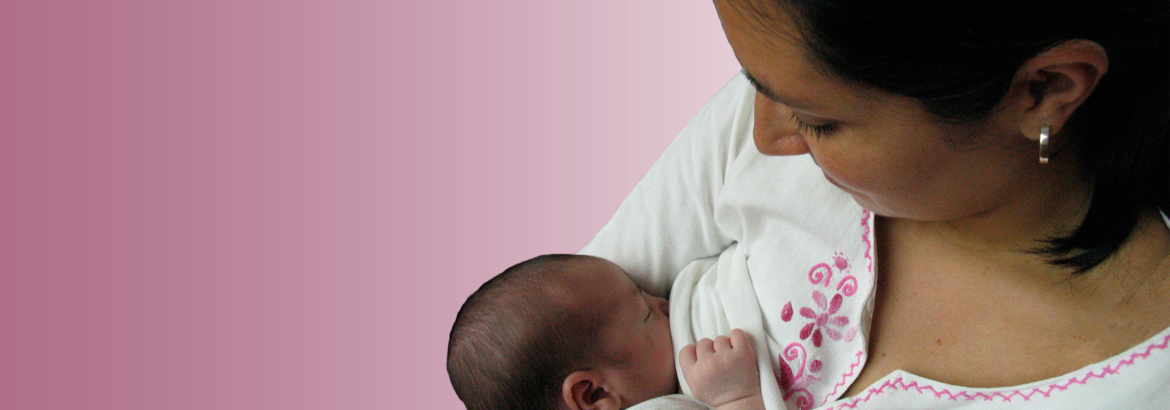
Breastfeeding:a great start
September - October, 2012
Our 1st online breastfeeding conference
Our first Rock Stars of Lactation™ were the speakers who presented at our inaugural online breastfeeding conference, Breastfeeding: a great start. This was held online during September – October 2012 and had participants from 36 countries. The conference is now closed and the presentations are no longer available. You can still read the topic introductions and more background about the speakers. Thank you for your interest!
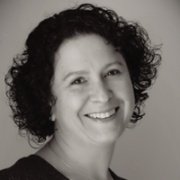
Vitamin D: mothers, babies, and you – a global perspective
Diana Cassar-Uhl, IBCLC - Read moreVitamin D: mothers, babies, and you – a global perspective
Diana Cassar-Uhl, IBCLC
Passionate about being an agent for change, Diana Cassar has written articles for the La Leche League publications Leaven and Breastfeeding Today, and is the author of the La Leche League tear-off sheet Vitamin D, Your Baby, and You.
Diana is a frequent presenter at breastfeeding education events. Many of her areas of expertise stem from her own experiences, which she sought to understand and raise awareness of for other mothers. Whether the topic is cultural, such as breastfeeding in the military, or technical, like breastfeeding with insufficient glandular tissue, Diana’s enthusiasm and passion for educating shine through in her presentations.
Having begun studies toward a Master of Public Health in 2011, Diana looks forward to a career in maternal/child health. Diana, mother to three breastfed children, served as a clarinetist on active U.S. Army duty from 1995-2012.
Vitamin D: mothers, babies, and you – a global perspective
The controversy surrounding Vitamin D has broad implications for women in pregnancy, during lactation, and for infants. We fear exposure to sunlight, our primary source of vitamin D, but hesitate to offer our babies anything that isn’t already delivered by human milk. With emerging research about vitamin D, how “sufficiency” is defined, and how too little vitamin D may affect the body beyond bone health, we can think critically about vitamin D and how best to ensure adequate intake for ourselves and our babies.
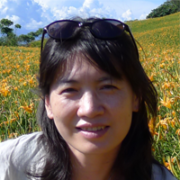
Establishing breastfeeding: challenges in Asia – the Taiwan perspective
Janedy Chen Shun-chuan, IBCLC - Read moreEstablishing breastfeeding: challenges in Asia – the Taiwan perspective
Janedy Chen Shun-chuan, IBCLC
Janedy Chen Shun-Chuan is an IBCLC, a Registered Nurse, a La Leche League Leader and a trained Peer Counsellor Administrator in Hualien, Taiwan. After taking Communication Skills workshops and the Peer Counsellor Administrators training at the LLLI Conference in 2005, she began training Peer Counsellors who can help mothers through government programs and can train staff in the medical community in her area. Janedy also holds the position of Chinese Area Professional Liaison for LLL Asia and the Middle East.
In 2011, Janedy and Maggie Yu, a Peer Counsellor Program (PCP) Specialist from Hong Kong, started the first PCP in Beijing, China. She loves to share the beauty and power of breastfeeding.
Establishing breastfeeding: challenges in Asia – the Taiwan perspective
According to recent research, the reason for women in Taiwan stopping breastfeeding is perceived low milk supply. A short talk about specific barriers to breastfeeding in Taiwan, and options to help mothers build up their milk supply from the beginning.
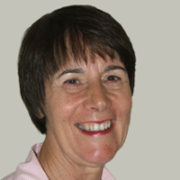
Protecting vulnerable neonates by using stored colostrum expressed antenatally
Sue Cox, AM, BM, IBCLC, FILCA - Read moreProtecting vulnerable neonates by using stored colostrum expressed antenatally
Sue Cox, AM, BM, IBCLC, FILCA
Sue Cox has worked with mothers and babies for more than 35 years as a breastfeeding counsellor with the Australian Breastfeeding Association (ABA), as a midwife and a hospital and private practice lactation consultant.
Sue was a member of the initial board of the International Board of Lactation Consultant Examiners and has served as a board member and President of the International Lactation Consultant Association. She combines her private practice lactation consultancy with writing and making DVDs both for new parents and health professionals. Her latest books are Baby Magic and Altering Hospital Breastfeeding Culture: Current Evidence for the Ten Steps to Successful Breastfeeding. Her latest DVDs are: Breastfeeding: Mom and I Can Do That and Mother and Baby… Baby Can Breastfeed Easily When Positioned Well.
Protecting vulnerable neonates by using stored colostrum expressed antenatally
Colostrum is the antibody-rich first milk produced by women. This production begins during the second trimester of pregnancy. During the first 24-48 hours of the neonatal period very small concentrated amounts are produced for immunological protection and for digestive tract development. If the neonate is found to have a low blood glucose estimation then this colostrum is often supplemented with artificial infant milk made from cow’s milk even though it has been known for nearly thirty years that cow’s milk protein is an environmental trigger of immunity to insulin in infancy.
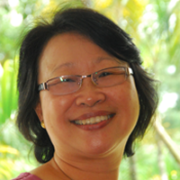
Establishing breastfeeding: challenges in Asia – advocating breastfeeding support in a Singapore hospital
Doris Fok, IBCLC, FILCA - Read moreEstablishing breastfeeding: challenges in Asia – advocating breastfeeding support in a Singapore hospital
Doris Fok, IBCLC, FILCA
Doris Fok has more than 28 years of experience in helping mothers to breastfeed. She started her professional career as the first International Board Certified Lactation Consultant in Singapore and Asia in 1992. Since then, she went on promoting breastfeeding and the profession through her work as the first International Board of Lactation Consultants’ Examiners’ Country Co-ordinator Singapore and also in the International Lactation Consultants’ Association as the first to represent the Asia Pacific region. In 2011, she became the first Asian to be designated “Fellow” of ILCA
Doris has worked extensively with various breastfeeding organizations in Asia, Australia, US and Canada. Besides advocacy work, she has trained many mothers’ support group counselors since 1990. She has collaborated with WHO in training health professionals in Indonesia and translated breastfeeding materials. She has published a Chinese handbook on breastfeeding and her training materials have also been translated into Malay, Tamil and Nepalese languages. For the past 9 years, she has devoted more time to doing research work in the Asian population. Her latest work can be seen at www.gusto.sg, collaborating with more than 70 investigators both locally and internationally.
Establishing breastfeeding: challenges in Asia – advocating breastfeeding support in a Singapore hospital
The presentation covers the journey of one hospital to change its practices to become more baby friendly. The first part covers the clinical practice improvement program which was conducted in one year. This was followed by changes to its delivery suite practice. In the following year, the committee worked on outpatient care and continued education of all health professionals. Finally this year, the breastfeeding policy has been officially approved and disseminated to the whole hospital. Work continues to improve the maternity practices to enable it to be both mother and baby friendly.

Rebuilding a breastfeeding culture in East Asia
Ted Greiner, PhD - Read moreRebuilding a breastfeeding culture in East Asia
Ted Greiner, PhD
Dr Ted Greiner is an expert in “International Nutrition”, is a dual US-Sweden citizen, and has lived and worked in many countries. He has been Professor of Nutrition at Hanyang University in Seoul, South Korea for the past four years. He has been involved in research, advocacy, teaching and program work related to breastfeeding since 1975 when he did the first research on the impact of baby food advertising on how mothers feed their babies.
Dr Greiner “tweets” regularly about some of the latest research as well as IBFAN and WABA activities for 4,800 followers on Twitter (@_breastfeeding). Both IBFAN Asia and WABA have given him Lifetime Achievement Awards.
Rebuilding a breastfeeding culture in East Asia
East Asia, like much of the world, has lost most its original breastfeeding culture. Without strong cultural support, it is doubtful that breastfeeding can again become strong. Thus one of the most complex tasks for the “breastfeeding community” in the region is to find ways to rebuild a breastfeeding culture. First we need a clear understanding of what has been lost and what remains. How have breastfeeding practices and their determinants changed, which changes occurred when, what were some of the likely causative factors? We must somehow get beneath the surface of the ubiquitous myths to get at underlying factors.
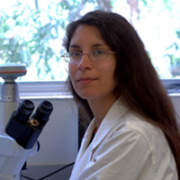
Stem cells in breastmilk – recent advances
Foteini Hassiotou. BSc (Hons), PhD - Read moreStem cells in breastmilk – recent advances
Foteini Hassiotou. BSc (Hons), PhD
Dr Foteini Hassiotou graduated from the Aristotle University of Greece in 2005 with a B.Sc. in Biology and First Class Honours in Microbiology and Physiology. She started a PhD in Physiology at the University of Western Australia, which she completed in 2009. She then joined the Hartmann Human Lactation Research Group of the University of Western Australia conducting research into the physiology of breastfeeding and breastmilk stem cells.
Dr Hassiotou’s research has a dual focus, concentrating on (a) the maternal stem cells that are present in breastmilk and their biological role for the breastfed infant and in the lactating breast. Dr. Hassiotou also uses these cells as models in breast cancer research to elucidate how they are subjected to malignant transformation that leads to cancer. And (b) the cellular hierarchy represented in human milk, from stem cells to differentiated lactocytes to immune cells, aiming at using them as tools of assessment of the health status and functionality of the breast.
Stem cells in breastmilk – recent advances
The female breast undergoes complete remodeling during pregnancy and lactation under the effect of a lactogenic hormonal complex that induces and maintains proliferation and subsequent differentiation of mammary stem cell and progenitor populations. Recent advances are showing that at least part of the different cell populations of the mammary gland is found within human breastmilk. These cells appear to be viable and can be further expanded in culture in response to specific microenvironmental cues. This presentation will touch on the cellular hierarchy of the female breast and how it is represented in breastmilk. It will go on to describe recent advances on the cell populations of human breastmilk, including stem cells, progenitor cells and more differentiated cells. Finally, it will discuss the properties of these cells, and their potential roles in the breast during lactation and for the breastfed infant.
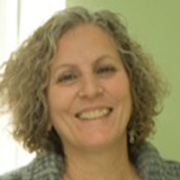
Using the Hazelbaker Assessment Tool™ for lingual frenulum function
Alison Hazelbaker, PhD, IBCLC, FILCA, CST, RCST - Read moreUsing the Hazelbaker Assessment Tool™ for lingual frenulum function
Alison Hazelbaker, PhD, IBCLC, FILCA, CST, RCST
Dr Alison Hazelbaker has an international reputation for her extensive experience in the lactation field. Her original research on tongue-tie has changed clinical practice. She is recognized as an expert on infant sucking issues and treatment. She invented the Hazelbaker(TM) FingerFeeder, a specialty feeding device designed to support or cultivate proper infant sucking as a means to transition infants onto or back to the breast.
Dr Hazelbaker has been a La Leche League Leader for 30 years and a practicing lactation consultant for over 27 years and maintains a private practice in Columbus, Ohio, USA. Within her practice she utilizes CranioSacral Therapy and Lymphatic Drainage Therapy along with botanicals and homeopathy. Her willingness to address breastfeeding problems from a variety of perspectives has earned her the respect of her colleagues and her clients.
She has authored many monographs and articles on lactation theory and management, and has recently published a new book, Tongue-tie: Morphogenesis, Impact, Assessment and Treatment. She is currently working on a book about the use of homeopathy for childbearing and breastfeeding issues.
Using the Hazelbaker Assessment Tool™ for lingual frenulum function
This presentation focused on enhancing the clinical assessment skills of practicing and aspiring lactation consultants and other health care professionals who work with infants. The differences between assessment, screening and classification of frenulum function will be discussed, and the various criteria for proper tongue-tie screening will be provided. The use of the Hazelbaker Assessment Tool for Lingual Frenulum Function (HATLFF) and how to incorporate the HATLFF in to delegates’ day-to-day clinical practice will also be covered.
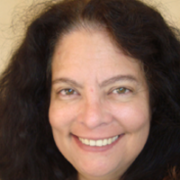
Supporting breastfeeding: the WHO Code and so much more!
Juanita Jauer Steichen, IBCLC - Read moreSupporting breastfeeding: the WHO Code and so much more!
Juanita Jauer Steichen, IBCLC
Juanita Jauer Steichen is Canadian and has lived in France for 25 years. She discovered breastfeeding with her three children and has never looked back! She was accredited as a La Leche League Leader in 1997 and is now serving as Professional Liaison Administrator for LLL Europe. She became a lactation consultant in 2003.
Juanita is an avid pursuer of breastfeeding-related information. She has attended many conferences both at home and abroad as well as online ones. She has spoken on many topics: the Code, ethics, relations with health providers, how to find medical information and how to communicate with parents and health providers. She was the coordinator for the Journée Internationale de l’Allaitement (‘JIA’ – International Breastfeeding Conference for health professionals organized by LLL France) in 2003 and 2008 and helped create and implement the Peer Counsellor Programme in France (Programme relais allaitement- Prall).
Juanita was the representative of LLL Europe to WABA from 2007 to 2012 and participated in various week-long international conferences including ‘Breastfeeding: 6 to 24 months and more’ in Penang, Malaysia (October 2008), ‘Breastfeeding and Gender Issues’ in New Delhi, India (July 2009), Global Forum in Tanzania (September 2002).
The WHO Code is one of Juanita’s passions! She has been a member of the Coordination française pour l’allaitement maternel (CoFam) since 2007, and is head of the Task Force on the Code and ethical questions. As a member of IBFAN and GIFA, she was given the opportunity to participate in international meetings of the Codex Alimentarius and the OECD in Paris, as well as in week-long IBFAN conferences in Montecatini in 2007and in Geneva in 2008. She also attended the Committee on the Convention on Rights of the Child in Geneva for IBFAN and helped prepare a report underlying the importance of breastfeeding and the need to apply the Code (2009). Juanita is an active member of IBFAN’s Global Working Group on Contaminants in Breastmilk.
Supporting breastfeeding: the WHO Code and so much more!
As advocates of breastfeeding, we are asked to respect and uphold the International Code of Marketing of Breast-milk Substitutes. Despite its rather forbidding title, the Code is an exciting tool for the protection, promotion and support of breastfeeding – really! In this presentation, we will look at the historical origins of the Code and its impact on health recommendations in order to truly understand the importance of the Code as the cornerstone of breastfeeding advocacy around the world. What does the Code cover? How does the Code protect babies, including formula-fed infants? We will look at international organizations and documents for breastfeeding advocacy, discuss the ethics underlying the Code, and consider the risks of conflict of interest.
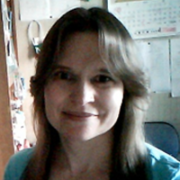
The importance of mother-to-mother support - the Asian perspective
RuthAnna Mather, BS - Read moreThe importance of mother-to-mother support - the Asian perspective
RuthAnna Mather, BS
RuthAnna Mather was born in Japan and has lived in Hokkaido for most of her life. She and her husband John have six children ranging in ages from 12 to 26 years of age – all six were born in Japan and breastfed. She became a La Leche League Leader in 1999 with LLL Wakkanai, a Japanese-speaking Group. Due to the fact that RuthAnna is fluent in Japanese, in 2001 she was asked to take on the role of District Coordinator for the English-speaking Leaders in Japan and to be the bridge between English speaking Leaders in Japan and LLL Japan.
Since 2004 RuthAnna has been the Area Coordinator of Leaders for LLL in Asia and the Middle East. She is also Area Translations Coordinator for LLL Asia and the Middle East and helps coordinate translations in Simplified Chinese, Traditional Chinese, Hindi, and Arabic.
The importance of mother-to-mother support – the Asian perspective
Mother-to-mother support is a key factor in giving breastfeeding mothers the confidence they need to continue breastfeeding on a day-to-day basis even when they may be facing obstacles such as pressure from family and friends to supplement or wean, cultural hindrances to breastfeeding, and other concerns. This presentation focuses on the importance of mother-to-mother support and how this may counterbalance some of the hindrances and difficulties breastfeeding mothers may face in Asia.

The importance of Vitamin T
Pinky McKay, IBCLC - Read moreThe importance of Vitamin T
Pinky McKay, IBCLC
Pinky McKay is a best-selling author with four titles published by Penguin including Sleeping Like a baby, 100 Ways to Calm the Crying, Toddler Tactics and Parenting By Heart. The Australian Breastfeeding Association, La Leche League International and The Australian Association of Infant Mental Health endorse her books.
In a world where common sense isn’t so common, Pinky McKay provides real-world, no-nonsense, parenting support and approaches with a blend of humour, sharp wit and wisdom not found anywhere else. Pinky specializes in gentle parenting styles that honour mothers’ natural instincts to respond to their babies and empower a positive response from infants and toddlers without what Pinky terms ‘normalised abuse’. She says, “Babies and toddlers are people too and they deserve empathy and respect, not ‘training’ through techniques such as rigid routines, controlled crying or spanking. This allows children to respond positively to their environment and to develop appropriate boundaries through mutual respect and strong family relationships.” Her real world experience stems from being the mother of five and ‘hands on’ grandmother of three littlies.
Pinky runs a private lactation consultant practice in Melbourne. Her reach extends worldwide with support for parents via teleseminars and webcasts to provide tips on gentle, responsive baby care. Resources such as books, Baby Massage DVD and her ebook and audio program Breastfeeding Simply as well as her free newsletter ‘Gentle Beginnings’ are available through website www.pinkymckay.com.au.
The importance of Vitamin T
Despite research supporting the critical importance of skin to skin between mother and baby after birth, hospital protocols such as weighing and dressing babies and separating mother and baby may significantly disrupt early mother-infant interactions. This may have unintended negative effects on bonding and attachment as well as the initiation of breastfeeding. The evidence for this is discussed along with what this means for early parenting and for those who care for babies and parents, in normal and adverse circumstances.
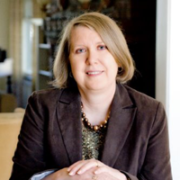
Simplifying breastfeeding: the first 36 hours
Nancy Mohrbacher, IBCLC, FILCA - Read moreSimplifying breastfeeding: the first 36 hours
Nancy Mohrbacher, IBCLC, FILCA
Nancy Mohrbacher is author of Breastfeeding Answers Made Simple and co-author of Breastfeeding Made Simple: Seven Natural Laws for Nursing Mothers (with Kathleen Kendall-Tackett), and The Breastfeeding Answer Book (with Julie Stock), some of the most popular books in breastfeeding. Nancy also writes a blog entitled Nancy Mohrbacher Breastfeeding Reporter at www.nancymohrbacher.com.
Nancy has been working with breastfeeding families since 1982, first as a La Leche League Leader and then from 1991 as an IBCLC. She owned and ran a large private lactation practice in the Chicago area for 10 years and then for eight years she staffed the breastfeeding hotline of a large breast pump manufacturer. She now works for LactCorp, providing resources and information for businesses and their breastfeeding employees.
Nancy’s lifetime achievements in breastfeeding were recognized in 2008 when she became a Fellow of the International Lactation Consultant Association (FILCA). She is currently a member of the Board of Directors of Breastfeeding USA, chairs the developing Mothers’ Milk Bank of the Western Great Lakes and helped found the Chicago Area Breastfeeding Coalition.
Simplifying breastfeeding: the first 36 hours
Geared for those who work with mothers and babies after birth, this presentation’s focus is on how to make early breastfeeding easier, which postpartum practices have long-term implications, what biology tells us about normal feeding patterns, and the effects of skin-to-skin contact and separation on infant stability.
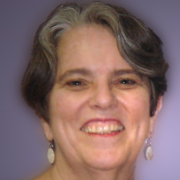
The mother-baby dance: how mothers and babies think, and why this matters
Christina Smillie, MD, FAAP, IBCLC, FABM - Read moreThe mother-baby dance: how mothers and babies think, and why this matters
Christina Smillie, MD, FAAP, IBCLC, FABM
Dr Christina Smillie is an American physician, board certified both as a pediatrician since 1983 and as a lactation consultant since 1995. In 1996 she founded Breastfeeding Resources in Stratford, Connecticut, the first private medical practice in the USA limited to the specialty of breastfeeding medicine.
Her clinical experience with mothers and babies over the past fifteen years has taught her much about a variety of clinical issues. Fascinated by how babies, mothers, and health care professionals learn, she is perhaps best known for her DVD, Baby-led Breastfeeding: The Mother-Baby Dance, which she wrote and produced with Makelin Media and Geddes Productions.
Dr Smillie has been a member of the Academy of Breastfeeding Medicine since its inception, and was awarded Fellowship in 2002. She served two terms on the Academy’s Board of Directors, and currently serves on ABM’s Communications Committee. She continues to serve as an advisor to the American Academy of Pediatrics Section on Breastfeeding, and to the Health Advisory Council of La Leche League International.
Dr Smillie speaks nationally and internationally about the physiology, pathophysiology and clinical management of a wide variety of breastfeeding issues, always stressing the role of the motherbaby as a single psychoneurobiological system, and emphasizing the importance of the innate instincts underlying both maternal and infant competence.
The mother-baby dance: how mothers and babies think, and why this matters
This presentation explains how a mother’s innate intuitive right-brained interactions with her infant help her baby organize for learning, handle emotional stress, and adapt to his changing environment. It discusses the ways the hormone oxytocin helps promote infant survival, and goes on to explain how an understanding of right-brained processes can help health care providers better communicate with post-partum mothers.
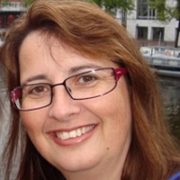
Recertification: what every IBCLC needs to know
Karolyn Vaughan, RN, RM, C&FHN, MRes, MIMH, IBCLC - Read moreRecertification: what every IBCLC needs to know
Karolyn Vaughan, RN, RM, C&FHN, MRes, MIMH, IBCLC
Karolyn Vaughan has been an IBCLC since 1992; she is a registered nurse and midwife and has post graduate qualifications as a Child and Family Health Nurse with a Bachelor of Science (Nursing), Masters of Research (Honours) and a Masters of Infant Mental Health and is currently a PhD student at Griffith University Queensland.
Karolyn has extensive clinical experience of working with mothers and their families in a community setting as well in residential units.
Karolyn is the Regional Director for IBLCE in the Asia Pacific and Africa Region.
Recertification: what every IBCLC needs to know
The International Board of Lactation Consultant Examiners (IBLCE) is a non profit organisation governed by a Board of Voluntary Directors. The IBLCE examination is the premier, internationally recognised measure of knowledge in lactation consulting. Founded in 1985, IBLCE serves over 25,000 certificants internationally in 90 countries, with annual examinations translated into multiple languages and administered in numerous sites around the world. This presentation will provide an overview of the IBLCE recertification process and answer commonly asked questions by IBCLCs, such as why recertification is important for the IBCLC, the mother and her family, and our communities, and the reasons that recertification is a growing requirement of many certification boards and health professional registries of their clinicians.
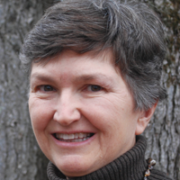
Sleep locations and breastfeeding outcomes
Diane Wiessinger, MS, IBCLC - Read moreSleep locations and breastfeeding outcomes
Diane Wiessinger, MS, IBCLC
Diane Wiessinger has a private lactation consultancy practice in Ithaca, New York State, USA. She became a La Leche League Leader in 1985 and an IBCLC in 1990.
Diane is co-author, with Diana West and Teresa Pitman, of the 8th edition of La Leche League International’s Womanly Art of Breastfeeding and author and contributing author of numerous breastfeeding resources including chapters in Catherine Watson Genna’s Supporting Sucking Skills in Breastfeeding Infants, Linda Smith’s The ABC’s of Private Practice.
Diane is a frequent speaker all around the world on the topics of mechanics, behaviours, and support systems involved in successful breastfeeding. She also self-publishes a collection of breastfeeding handouts on CD, most of which are also on her website, www.normalfed.com.The term “Wiessingerizing” which is used to mean normalizing breastfeeding has become a verb amongst breastfeeding advocates.
Sleep locations and breastfeeding outcomes
Is sleeping with a baby risky? A look at primates, our past, and the critical differences between breastfeeding and bottle-feeding. Bottom line: There is no known increase in risk when a non-smoking, sober, breastfeeding mother sleeps with her baby on a safe surface.

Establishing breastfeeding: challenges in Asia – the Hong Kong perspective
Maggie Yu Yuen-ling, IBCLC - Read moreEstablishing breastfeeding: challenges in Asia – the Hong Kong perspective
Maggie Yu Yuen-ling, IBCLC
Maggie Yu has been helping mothers breastfeed for 16 years and became certified as an IBCLC in 2009. She currently works as a private practice Lactation Consultant at Modern Mama Lactation Consultancy in Hong Kong.
Other than her LC private practice, Maggie is passionate about establishing breastfeeding support in areas lacking mother-to-mother support programs. She is also a La Leche League Leader and Peer Counsellor Program Administrator, and an executive committee member of the Baby Friendly Hospital Initiative (BFHI)-Hong Kong. Since 2010, Maggie has been working with BFHI and the Department of Health in Hong Kong for the first Breastfeeding Peer Counsellor Program (PCP). In 2011, Maggie and Janedy Chen, a Peer Counsellor Program Specialist from Taiwan, started the first PCP in Beijing, China.
Establishing breastfeeding: challenges in Asia – the Hong Kong perspective
Is sleeping with a baby risky? A look at primates, our past, and the critical differences between breastfeeding and bottle-feeding. Bottom line: There is no known increase in risk when a non-smoking, sober, breastfeeding mother sleeps with her baby on a safe surface.

